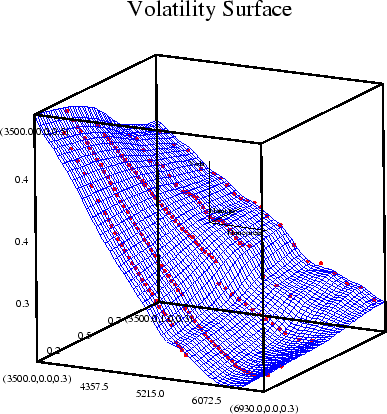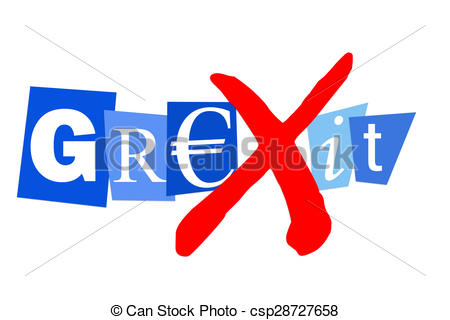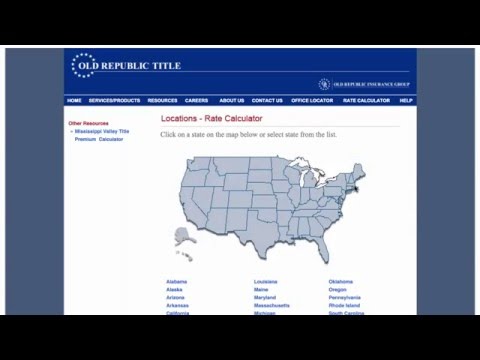Contents:
The standard hedge fund fees are commonly referred to as “2 and 20,” meaning that they charge a fee of 2% of the assets under management plus 20% of the profits above a certain benchmark. Managers of traditional mutual funds generally rely on identifying and buying stocks and other assets that they believe will go up in value over time. For hedge funds, at least in principle, it makes no difference whether the market goes up or down. The most recent addition to the field approaches the problem in a different manner. This makes the index investable, and in principle, they can be as representative as the hedge fund database from which they were constructed.
The databases have diverse selection criteria and methods of construction, and no single database captures all funds. This leads to significant differences in reported performance between different indices. The typical hedge fund is not traded on exchange, will accept investments only at the discretion of the manager, and does not have an obligation to publish returns. Despite these challenges, Non-investable, Investable, and Clone indices have been developed. An auditor is an independent accounting firm used to perform a complete audit the fund’s financial statements. The year-end audit is performed in accordance with the standard accounting practices enforced within the country in which the fund it established, typically US GAAP or the International Financial Reporting Standards .
Investors look at the annualized rate of return to compare funds and reveal funds with high expected returns. To establish guidelines for a specific strategy, an investor can use an analytical software package such as Morningstar to identify a universe of funds using similar strategies. Hedge funds differ from mutual funds and hedge funds are not as strictly regulated by the Securities and Exchange Commission as mutual funds are.
Unlike management fees and performance fees, redemption fees are usually kept by the fund and redistributed to all investors. Risk arbitrage or merger arbitrage includes such events as mergers, acquisitions, liquidations, and hostile takeovers. Risk arbitrage typically involves buying and selling the stocks of two or more merging companies to take advantage of market discrepancies between acquisition price and stock price. The risk element arises from the possibility that the merger or acquisition will not go ahead as planned; hedge fund managers will use research and analysis to determine if the event will take place. Financial regulators generally restrict hedge fund marketing to institutional investors, high net worth individuals, and accredited investors.
In 2011, the top manager earned $3 billion, the tenth earned $210 million, and the 30th earned $80 million. In 2011, the average earnings for the 25 highest-compensated hedge fund managers in the United States was $576 million while the mean total compensation for all hedge fund investment professionals was $690,786 and the median was $312,329. The same figures for hedge fund CEOs were $1,037,151 and $600,000, and for chief investment officers were $1,039,974 and $300,000, respectively. Other sub-strategies include those employed by commodity trading advisors , where the fund trades in futures in commodity markets or in swaps. They also take both long and short positions, allowing them to make profit in both market upswings and downswings.
In 2020, the average hedge fund underperformed the market indexes, according to a report from Reuters. The best returns came from funds devoted to stock-picking, which scored double-digit returns by choosing the stocks of companies that focus on technology and stay-at-home products. There is a debate over whether alpha (the manager’s skill element in performance) has been diluted by the expansion of the hedge fund industry.
How Do Hedge Funds Make Money?
As with any investment, if you are in any doubt you should seek independent financial advice. • Protection from the Financial Ombudsman Service does not cover poor investment performance. If you have a complaint against an FCA-regulated firm, FOS may be able to consider it. • If the business you invest in fails, you are likely to lose 100% of the money you invested. When a fund is added to a database for the first time, all or part of its historical data is recorded ex-post in the database.
- Because side pockets are used to hold illiquid investments, investors do not have the standard redemption rights with respect to the side pocket investment that they do with respect to the fund’s main portfolio.
- The short seller nets a profit only if the share price does, in fact, decline.
- The year-end audit is performed in accordance with the standard accounting practices enforced within the country in which the fund it established, typically US GAAP or the International Financial Reporting Standards .
- Portfolio management involves selecting and overseeing a group of investments that meet a client’s long-term financial objectives and risk tolerance.
- As well as specific risks such as style drift, which refers to a fund manager “drifting” away from an area of specific expertise, manager risk factors include valuation risk, capacity risk, concentration risk, and leverage risk.
In July 2015, the United States Internal Revenue claimed hedge funds used basket options “to bypass taxes on short-term trades”. These basket options will now be labeled as listed transactions that must be declared on tax returns, and a failure to do would result in a penalty. Administrator back office support allows fund managers to concentrate on trades.
Voordelen van beleggen in hedge funds
Raising $100,000, he designed a fund that aimed to minimize the risk in long-term stock investing byshort-selling, now referred to as the long/short equities model. An activist hedge fund aims to invest in businesses and take actions that boost the stock price which may include demands that companies cut costs, restructure assets or change the board of directors. An equity hedge fund may be global or specific to one country, investing in lucrative stocks while hedging against downturns in equity markets by shorting overvalued stocks or stock indices. Investing in early-stage businesses involves risks, including illiquidity, lack of dividends, loss of investment and dilution, and it should be done only as part of a diversified portfolio. SyndicateRoom is targeted exclusively at sophisticated investors who understand these risks and make their own investment decisions. Tax relief depends on an individual’s circumstances and may change in the future.
Each country has its own specific restrictions on hedge fund activities, including controls on use of derivatives in Portugal, and limits on leverage in France. The legal structure of a specific hedge fund, in particular its domicile and the type of legal entity in use, is usually determined by the tax expectations of the fund’s investors. Many hedge funds are established in offshore financial centers to avoid adverse tax consequences for its foreign and tax-exempt investors.
Strijd GameStop tegen hedgefondsenBY DUNCAN MILJanuary 29 … – Dagblad Suriname
Strijd GameStop tegen hedgefondsenBY DUNCAN MILJanuary 29 ….
Posted: Sun, 31 Jan 2021 08:00:00 GMT [source]
consumer packaged goods and debt index fund products provide investable access to most developed markets in these asset classes. Hedge funds performance is measured by comparing their returns to an estimate of their risk. These measures work best when returns follow normal distributions without autocorrelation, and these assumptions are often not met in practice. An alternative investment is a financial asset that does not fall into one of the conventional investment categories. Elliot Management Corporation with a 55-year-long history and over $50 billion in assets under management .
De risico’s van hedge funds:
Understand how a fund’s performance is determined and whether it reflects cash or assets received by the fund as opposed to the manager’s estimate of the change in the value. A relative value hedge fund seeks to exploit temporary differences in the prices of related securities, taking advantage of price or spread inefficiencies. Enter your email to receive our monthly newsletter covering our latest investments and projects, insights from investors and information about our data-driven model. As you can see, much depends on the ability of the fund manager to anticipate shifts in the market and react accordingly. • A good rule of thumb is not to invest more than 10% of your money in high-risk investments.
As management fees are intended to cover the firm’s operating costs, performance fees are generally distributed to the firm’s owners as profits. Funds do not tend to report compensation, and so published lists of the amounts earned by top managers tend to be estimates based on factors such as the fees charged by their funds and the capital they are thought to have invested in them. Many managers have accumulated large stakes in their own funds and so top hedge fund managers can earn extraordinary amounts of money, perhaps up to $4 billion in a good year. Hedge funds share many of the same types of risk as other investment classes, including liquidity risk and manager risk. Liquidity refers to the degree to which an asset can be bought and sold or converted to cash; similar to private-equity funds, hedge funds employ a lock-up period during which an investor cannot remove money. As well as specific risks such as style drift, which refers to a fund manager “drifting” away from an area of specific expertise, manager risk factors include valuation risk, capacity risk, concentration risk, and leverage risk.
Can I invest in a hedge fund?
https://1investing.in/ fund returns are reduced considerably by the high fees that are typically charged. Hedge funds are highly individual, making it hard to estimate the likely returns or risks. Although they aim to be representative, non-investable indices suffer from a lengthy and largely unavoidable list of biases. Funds’ participation in a database is voluntary, leading to self-selection bias because those funds that choose to report may not be typical of funds as a whole. For example, some do not report because of poor results or because they have already reached their target size and do not wish to raise further money. Indices play a central and unambiguous role in traditional asset markets, where they are widely accepted as representative of their underlying portfolios.
The aim of all hedge funds is to maximise investor returns and eliminate risk, regardless of whether the market is going up or down. Then again, hedge fund managers don’t have a leg to stand on if they fall short of the most commonly tracked indexes. Generally, hedge funds operate as limited partnerships or limited liability companies and rarely have more than 500 investors each.
In 2011, half of the existing hedge funds were registered offshore and half onshore. The Cayman Islands was the leading location for offshore funds, accounting for 34% of the total number of global hedge funds. The US had 24%, Luxembourg 10%, Ireland 7%, the British Virgin Islands 6%, and Bermuda had 3%. During the 1990s, the number of hedge funds increased significantly with the 1990s stock market rise, the aligned-interest compensation structure (i.e., common financial interests), and the promise of above average returns as likely causes.
- These strategies can also be divided into trend or counter-trend approaches depending on whether the fund attempts to profit from following market trend (long or short-term) or attempts to anticipate and profit from reversals in trends.
- Service providers include prime brokers, banks, administrators, distributors, and accounting firms.
- The databases have diverse selection criteria and methods of construction, and no single database captures all funds.
- In 2011, the average earnings for the 25 highest-compensated hedge fund managers in the United States was $576 million while the mean total compensation for all hedge fund investment professionals was $690,786 and the median was $312,329.
- Hedge fund investment is considered a risky alternative investment choice and requires a high minimum investment or net worth from accredited investors.
By contrast, offshore corporate funds are usually used for non-US investors, and when they are domiciled in an applicable offshore tax haven, no entity-level tax is imposed. Many managers of offshore funds permit the participation of tax-exempt US investors, such as pensions funds, institutional endowments, and charitable trusts. As an alternative legal structure, offshore funds may be formed as an open-ended unit trust using an unincorporated mutual fund structure. Japanese investors prefer to invest in unit trusts, such as those available in the Cayman Islands.
In addition, the availability of tax relief depends on the company invested in maintaining its qualifying status. You should not rely on any past performance as a guarantee of future investment performance. Led by Wall Street trader John Meriwether and a team of finance wizards and PhDs, Long Term Capital Management imploded in the late 1990s. It nearly sank the global financial system and had to be bailed out by Wall Street’s biggest banks.
A hedge fund is a limited partnership of private investors whose money is managed by fund managers who invest in risky or non-traditional assets. A fund has to return a stellar performance in order to overcome a fee of 1% to 2% of assets plus 20% of profits. Given the profits that managers take, hedge funds often don’t deliver to investors the promise of market-beating performance.
Because side pockets are used to hold illiquid investments, investors do not have the standard redemption rights with respect to the side pocket investment that they do with respect to the fund’s main portfolio. Profits or losses from the investment are allocated on a pro rata basis only to those who are investors at the time the investment is placed into the side pocket and are not shared with new investors. Funds typically carry side pocket assets “at cost” for purposes of calculating management fees and reporting net asset values. This allows fund managers to avoid attempting a valuation of the underlying investments, which may not always have a readily available market value.
These types of strategies have a greater exposure to the fluctuations of the overall market than do market neutral strategies. Directional hedge fund strategies include US and international long/short equity hedge funds, where long equity positions are hedged with short sales of equities or equity index options. A hedge fund usually pays its investment manager a management fee (typically, 2% per annum of the net asset value of the fund) and a performance fee (typically, 20% of the increase in the fund’s net asset value during a year). Hedge funds have existed for many decades and have become increasingly popular.





